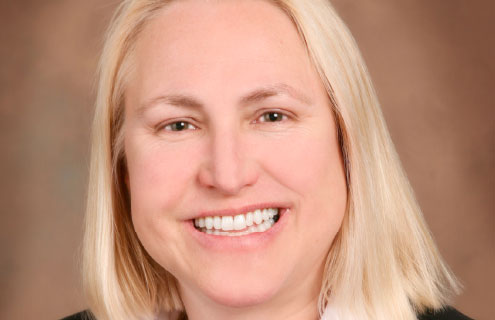Spring Consulting
Following Alera Group’s acquisition of Spring Consulting on 1 February, Spring Consulting’s CEO Karin Landry explains why the move provides them with the platform for increased success
What does Alera Group’s acquisition of Spring Consulting mean for the company?
From our standpoint, it is business as usual. They contacted us because of the things we do well, like captives, health and productivity, integrated disability, our actuarial work and some other things. I think that is what we bring that to Alera. What Alera brings to us is a bigger platform to do our work from, a very collaborative environment and some additional resources. I think it is a good fit between the two firms, very complimentary.
Did any other companies express an interest in acquiring Spring? If so, why did you decide on Alera Group?
We are had a number of enquiries over the last couple of years. It is pretty exciting to get together with a company that started as 24 entities that were boutique-like firms like Spring and came together to form Alera. It’s not often you get a chance to start a $200 million company that’s new in the market and ends up being number seven in employee benefits overnight.
In addition, the collaborative management style of the leaders, the fact that our skills were complementary, as well as the scope of the firm and its reach was attractive. We were excited to move forward with them, and that’s what made us decide to go forward. It is a very collaborative environment and the opportunity to make a difference in the marketplace by creating a new firm and creating a new platform and being part of that.
Three other Boston-based companies have been acquired by Alera recently, will you be working with them?
We’ve always believed that the sum of the parts ends up leading to a larger whole, the pie is bigger when you work together. This is one of the core beliefs that Spring has always believed in, so we expect to work collaboratively with the other Alera Group firms in our area and across the country. Whether we are in California, New York, or Florida meeting with clients. We are a very collaborative firm.
What are you most excited about for Spring Consulting over the next 6 to 12 months?
I’m looking forward to continuing to grow the firm, working on developing some new and differentiated employee benefits approaches for captives, expanding the cell company that we set up called Bloom Insurance Company. In addition to the other employee benefits and risk management work we do, we are doing a lot of risk optimisation studies looking at captives broadly across property and casualty and benefits and looking at what employers should do to maximise the value of the captive to their organisation.
How strong do you think the current US captive market is?
I think it’s very strong. I think it’s continuing to grow, all you have to do is look at the statistics from the last year, and certainly cell captives have continued to expand, pure captives have continued to look for opportunities to use a captive to help their organisations grow. I think that it is continuing to grow and we find the mature captives that we work with are looking at exploring new and differentiated uses for their captives. The middle market companies and smaller companies are looking at following the footsteps that have had larger companies for some time and recognised their value and are looking to add that to their organisation.
What are the main challenges for the US captive insurance market in 2018?
The captive market has excellent service providers, I think that the challenge is maintaining the excellence in the captive market that has existed for a long time because there have been some court challenges like Avrahami. It is imperative for service providers such as Spring to make sure that we redouble our efforts to make sure that everything is being done properly and being done in accordance with those things so that we don’t have future challenges as a result.
Are refeasibility studies a good way of maintaining the strength of the captive market?
Yes, I do. We believe that if a captive hasn’t reviewed its strategy, its approach, or its documentation in the last five years they should do so now. Really because a lot of regulations have changed there has been some nuances in the tax law like Avrahami that all point to what is the best practice for captives. So it’s always important to check to make sure everything is functioning, lines up and is compliant. I think the refeasibility approach is a way to keep your captive fresh, compliant and of value to
the organisation.
What effect do you think the US Tax Reform will have on the captive market in the US?
I think that people are just going to have to evaluate tax as just one aspect of what they look at. Generally, while the tax is an aspect, clients don’t focus on the tax implications of captives, I mean it is just one of the aspects. I don’t expect it to have a significant effect on the captive marketplace. In reality, it’s a good decision to move forward with captives because they help an organisation manage their risks and while tax has some impact on that it is only one of the factors.





